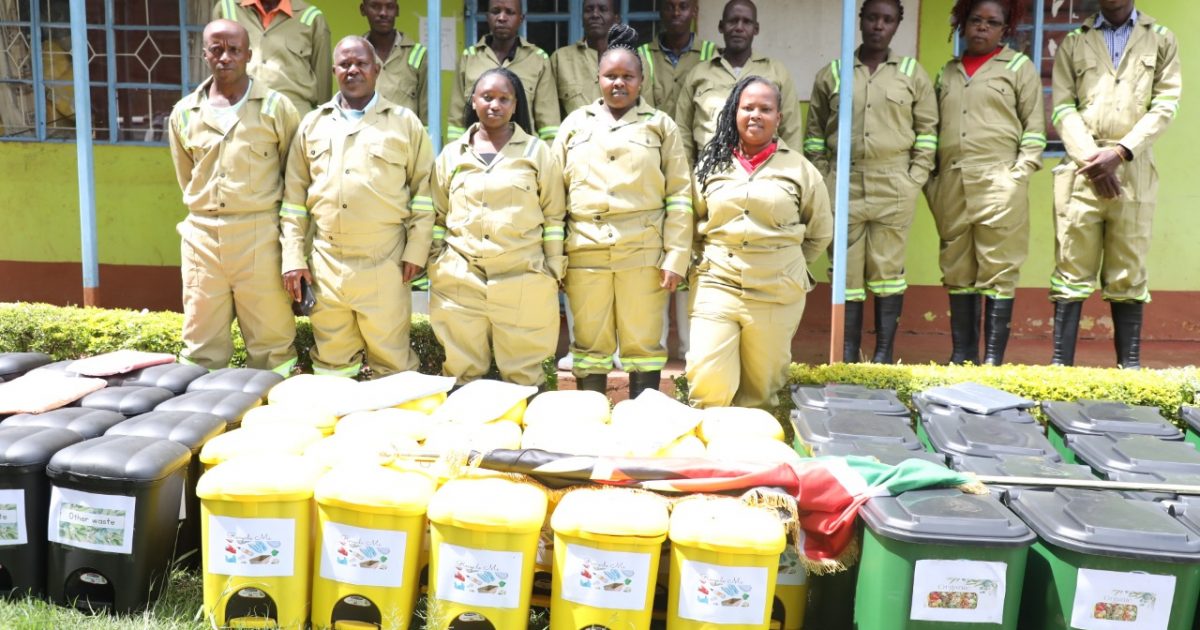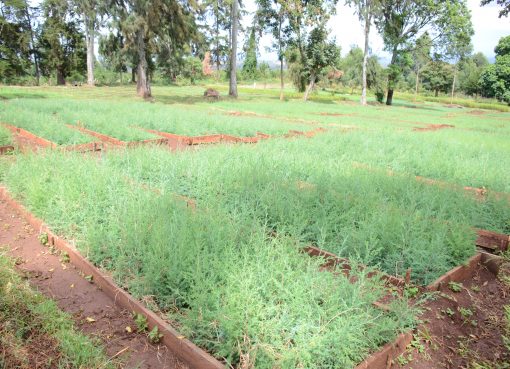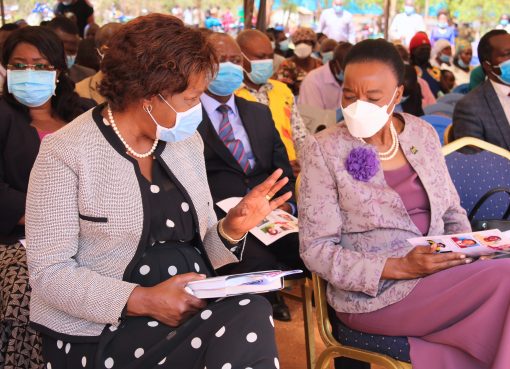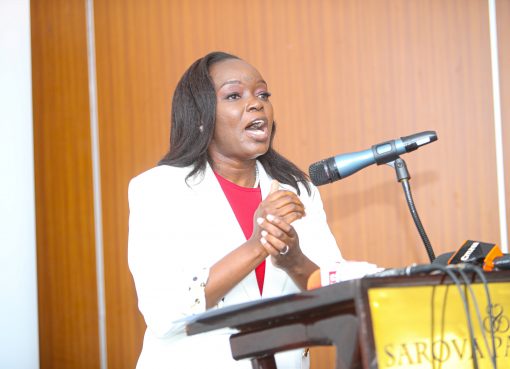Kericho County has intensified efforts aimed at managing waste which has for years been a major global challenge especially in developing nations.
In partnership with Practical Action, the County government embarked on a programme aimed at providing waste collection facilities to urban households.
According to the Kericho County Chief Officer in charge of Water, Energy, Environment and Natural Resources Eng. Richard Mitei, the waste management programme would ensure that waste was segregated at source, which would ease pressure on landfills and also make it easy to recycle.
Mitei was speaking during the launch of the programme that will benefit area residents with the distribution of 900 refuse pedal bins and 4500 liners together with complete set of 250 personal protective equipment.
“We are implementing this waste management programme which aims at providing waste collection facilities to urban households and training residents on their usage,” said Mitei
Mitei noted that ultimately, the whole idea was to convert waste-to-energy, an area he said would have significant social and economic benefits such as creation of green jobs and renewable energies which cuts on Greenhouse Gas emissions.
According to United Nations Environment Programme (UNEP), increasing volume and complexity of waste associated with the modern economy continues to pose serious risks to ecosystems and human health with 11.2 billion tonnes of solid waste collected worldwide annually as decay of the organic proportion of solid waste contributing 5 per cent of global greenhouse gas emissions.
Reports from UNEP further indicate that poor waste management – ranging from non-existing collection systems to ineffective disposal causes air pollution, water and soil contamination, while open and unsanitary landfills contribute to contamination of drinking water causing infections and transmission of diseases.
Meanwhile, UNEP says the solution in the first place, is the minimisation of waste and where waste cannot be avoided, recovery of materials and energy from waste as well as remanufacturing and recycling waste into usable products should be the second option.
By Kibe Mburu





